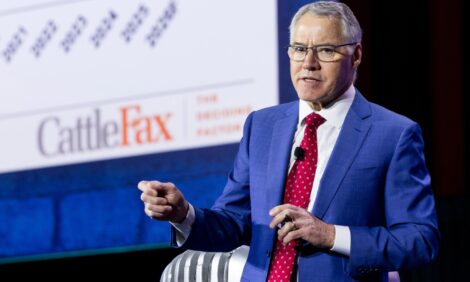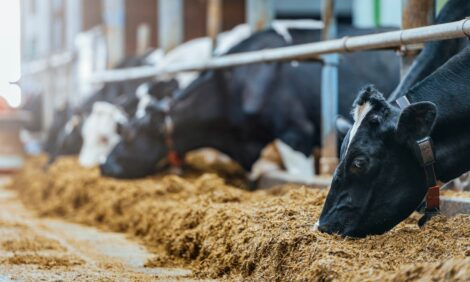



The Nature Conservancy, Cargill, McDonald’s, Target unite to support regenerative agriculture practices
The Nature Conservancy, McDonald’s, Cargill and Target are coming together to launch a new five-year, $8.5 million project aimed at working with Nebraska farmers to advance proven soil health practices to help mitigate greenhouse gas emissions and help farmers adapt to climate change.Overall, this effort has the potential to sequester 150,000 metric tons of carbon dioxide over the course of the project – equivalent to removing over 32,000 cars from the road in one year.
Nebraska is one of the top states for U.S. beef production and among the top three states for corn production, a key ingredient for cattle feed. This project will work with interested farmers to reach 100,000 acres of land and provide them with the technical and financial assistance to scale the implementation of regenerative soil health practices, including cover cropping, reduced tillage and diversified crop rotation.
“Mitigating climate change is a top priority for our organizations. We know we cannot tackle this alone,” said Heather Tansey, sustainability leader for Cargill’s protein and animal health businesses. “I’m so proud of this effort to not only promote carbon sequestration in the beef feed supply chain but also support the resilience of agricultural communities.”
Implemented practices will help store carbon in the soil versus the atmosphere, revitalizing the health of agricultural lands, which benefits farmers and the environment. This work will help unlock one of agriculture’s greatest opportunities to mitigate climate change.
“We know that healthy cropland soils boost fertility, improve water quality, and stabilize global climate,” said Dr. Hannah Birge, The Nature Conservancy’s director of agriculture in Nebraska and project director. “This project will leverage private and public resources to amplify the good work of Nebraska farmers as they scale up beneficial soil practices.”
“At Target, we’re committed to using resources responsibly and making our supply chain more sustainable,” said Ivanka Mamic, vice president of responsible sourcing and sustainability at Target. “It’s collaborative efforts like this that will help create and drive the change needed across the industry. We’re excited to begin this work, supporting farmers with proven soil health practices to help mitigate climate change together.”
As an Ecosystem Services Market Consortium pilot, the program works to connect farmers to private sector payments for societal climate and water benefits.
“Big companies are looking to improve their environmental footprints in measurable ways,” said Debbie Reed, director of the Ecosystem Services Market Consortium. “Farmers who adopt soil health practices can provide those improvements. The Consortium connects the two and creates a way to pay farmers for beneficial environmental outcomes.”
This connection, along with $4.4 million in support from a USDA Natural Resources Conservation Service grant through their Regional Conservation Partnership Program (RCPP), provides a way to further scale adoption of regenerative agriculture.
The initiative is also part of Cargill’s BeefUp Sustainability initiative which seeks to reduce greenhouse gas emissions throughout the company’s beef supply chain by 30 percent by 2030, measured on a per pound of beef basis against a 2017 baseline. Earlier this summer, Cargill launched a grassland restoration effort to support this goal. Similarly, this program is another step toward Target’s climate goals, approved by the Science Based Targets Initiative, to reduce carbon emissions by 30 percent below its 2017 baseline by 2030.
This investment also furthers McDonald’s progress toward meeting its Science Based Targets Initiative approved goal to reduce supply chain greenhouse gas emissions by 31 percent (per ton of food and packaging) across its supply chain by 2030 from 2015 levels. Through projects like this and other actions, McDonald’s expects to prevent 150 million metric tons of greenhouse gas emissions from being released into the atmosphere by 2030. This is the equivalent of taking 32 million passenger cars off the road for an entire year or planting 3.8 billion trees and growing them for 10 years.
“We are proud to partner with the Nebraska farming community to scale regenerative agricultural practices, reduce greenhouse gas emissions and increase the sustainability of food for future generations.” said Marion Gross, senior vice president, Chief Supply Chain Officer, McDonald’s North America. “This initiative will ultimately help mitigate impacts of climate change in the beef supply chain, a goal central to McDonald’s and our continued efforts to meet our science-based climate target.”
TheCattleSite News Desk


